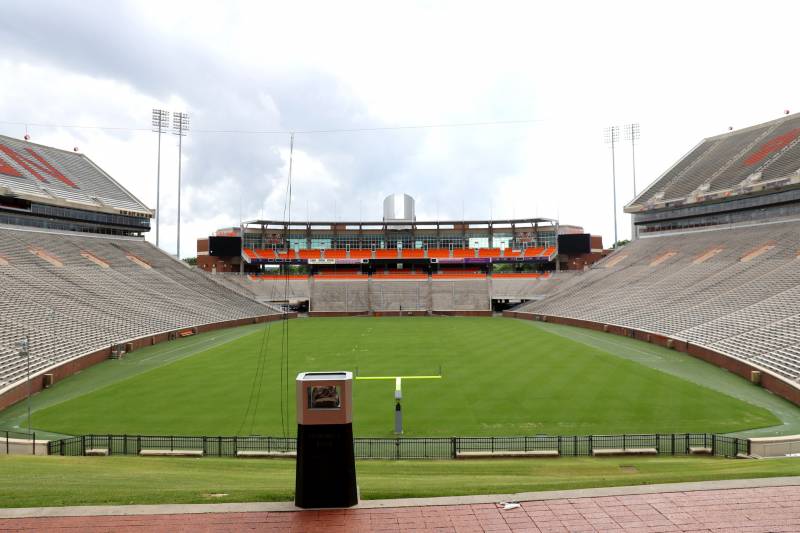Long-Term Health Risks
Brian Feeley, chief of sports medicine at UCSF, says the long-term health impacts of COVID-19 need to be better understood. By example he points to Eduardo Rodriguez, ace pitcher for the Boston Red Sox, who suffered only minor symptoms of COVID-19, only to be sidelined for the season due to inflammation around his heart linked to the virus.
“To be honest — as much as I love football, as much as I love college sports — my gut instinct is that we should hold off until we know more about the disease process and potentially even have a vaccine,” Feeley tells KQED.
“Sports are important,” he says, adding, “They’re not as important as your livelihood and your life. Setting people up for long-term disability when they’re already inherently at risk from playing sports — it is not worth the risk at this time.”
Cassandra Lee, a physician and chief of sports service at UC Davis, agrees that with face shields, aggressive testing and other protective measures, the risk of coronavirus infection during the game is less. But she wonders if athletes kept up with their training during government-mandated shelter-in-place orders, and she worries about players getting hurt while competing in less than peak condition.
“These high-level athletes are working out, training hard and then they get the rug pulled out from under them in early spring,” she says. “We joke that we’ve all gained the ‘COVID 20.'”
Dean Winslow, an infectious disease specialist at Stanford, says the NBA has demonstrated that contact sports can be safer for players with aggressive testing and isolation. The league built a quarantine zone inside Disney World designed to shield players and staff from exposure to the coronavirus.
“The NBA did it right,” he says, but questioned whether that could be replicated at universities and state schools with fewer resources and where college athletes are free to eat at restaurants, attend parties and drink at bars.
“In my mind, these are more significant factors for transmission than athletes acquiring infection from the actual sport,” Winslow says.
